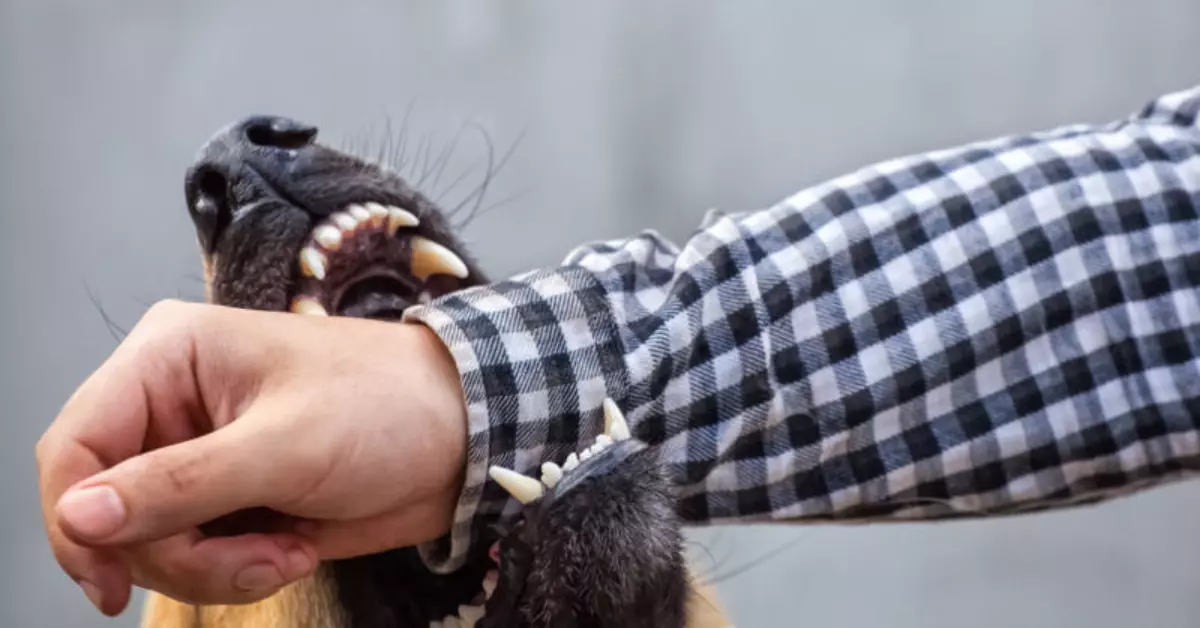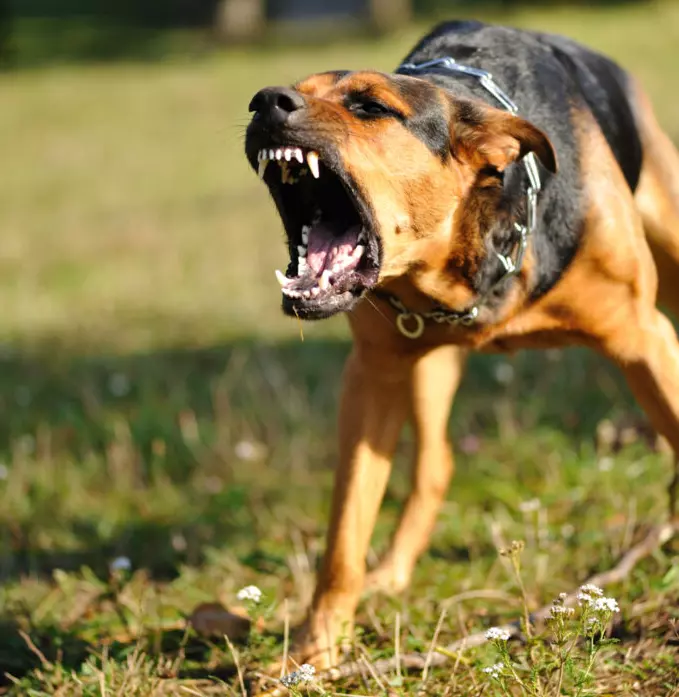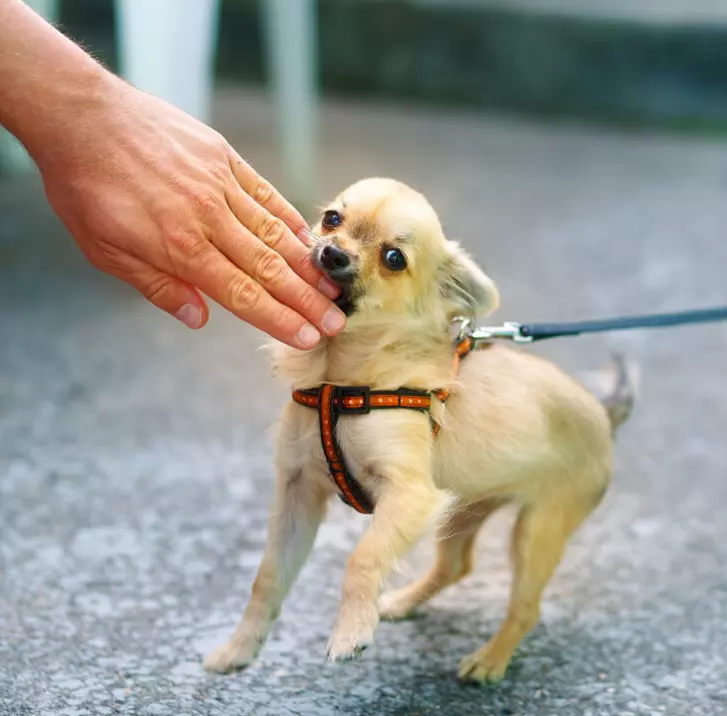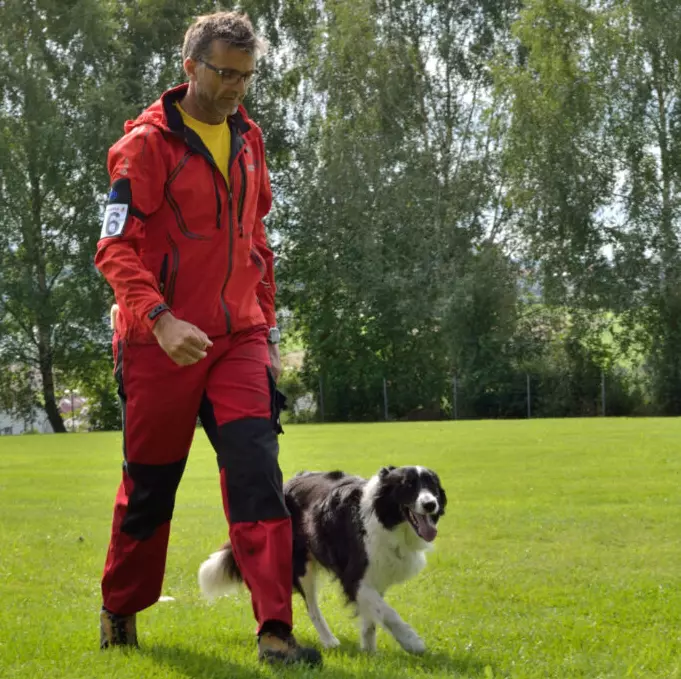Dog Bites An Intruder: Could I Be Liable?
Getting compensation from a dog bite is a right for an injured person, but could you be liable when a dog bites an intruder? There is usually no liability when your dog bites a criminal or a trespasser in your home.
Well, most people have dogs to protect their homes and, of course, to be a part of their family as well.

Still, whether your pet is a guard dog or a house dog, there will be instances that it will bite someone it doesn’t know, most especially when that person intrudes on your home, no matter how friendly your canine might be.
But, there are some states that could hold you accountable. So, continue scrolling to understand the topic.
Liability For Dog-Bite: Are Intruders Also Protected?
As I’ve said earlier, a dog owner won’t be liable when a dog bites an intruder.
There are countries like Maryland that have laws that protect owners when their dog bites a trespasser or criminal; here’s the rule for it, under subsection C (1) and (2).
Especially when there is a question of fact, or the plaintiff couldn’t prove that the dog owner is negligent or is at fault, the jury will most likely go side of the dog, such as in Hawaii where a dog that bites trespassers or criminals are protected, here’s the law.

However, in states like California, dog bite attorneys will hold you accountable for the damage your dog caused because of their strict liability laws.
So, a trespasser might get compensation from a dog owner when proven negligent in handling their pet.
For instance, if you placed a guard dog in your yard where children would pass through as a short cut will not keep you from a possible dog bite liability.
However, if the kids provoked or break into your house, then that’s a different case to solve. Nevertheless, here’s a law you want to review.
Case Of A Dog Bite: A Friend Who Was Thought To Be An Intruder
A parent from New Jersey asked if they are liable for their daughter’s friend’s injury after their German Shepherd hurt the boy.
It goes this way, their older daughter brought home friends around 3 A.M. You can say that it was dark, and they were in the living room where the homeowners’ dogs reside.
One of her male friends decided to get closer to the family’s four-year-old male German Shepherd/Husky mix dog, a four-year-old male.
The dog was at peace on his dog chair when the 24-year-old boy pets him, thinking that the boy was an intruder because the dog doesn’t know him in the first place, bites their daughter’s friend on his nose.
The dog didn’t attack the boy, but since it was dark and unfamiliar, it was a reaction because it got startled.
Is the family liable?
So, will the homeowners be liable in this situation? The discussion’s response was mostly to contact their homeowner insurance since they can sue anyone at this point.
Since New Jersey has a strict dog bite liability statute (NJSA 4:19-16.), the state would usually hold the dog owners accountable for the damages their dog caused even if the dog doesn’t have vicious behavior from the past or has bitten anyone.
However, the boy was not a trespasser since the daughter brought him. Yet, he went to the dog himself without thinking about what it would do, mostly because he was new to the home.
Nevertheless, the dog owner will only be held accountable when the plaintiff will be able to prove the dog owner:
- The defendant owns the dog;
- That the plaintiff was welcomed in a private place, which includes the property of the defendant; and finally
- That the plaintiff was bitten on the said area of the defendant.
With that, you can tell that the plaintiff quickly proves these three elements because he was lawfully in the house and was bitten by the dog of the said home.
But the defendant can counterpart the claim by proving that the plaintiff exposes himself to risk knowing that the dog will bite or because the plaintiff caused the dog to injure him by tormenting or beating the canine.
In contrast, the plaintiff did both none. Therefore, the family’s insurance company will most likely pay on this claim, meaning that the dog owners are liable for their daughter’s friend’s injury.
Now, you can tell that not all states are dog bite friendly, as there are some places where strict dog-bite liability is implemented.
But, I understand that not all states have the same law regarding dog bites or superficial injuries caused by dogs, which I will discuss with you in this article.
In contrast, you first want to know how someone will be considered a trespasser and your duties if they got bitten by your dog. So, read on!
What Is A Trespasser?

Such a case can be quite challenging, especially for the dog owner since most states are strict regarding dog bites or dog-related injuries.
But if a dog attacked a trespasser, it would be a different case to settle, and the dog owner could have a higher chance of avoiding compensation.
With this, the court would want you to prove that the plaintiff was indeed a trespasser, as it will determine whether the dog owner owes the injured person and if the court can apply the state’s dog bites law.
So, how can one be considered as a trespasser? You will be considered as a trespasser if you unlawfully break in a private property, land or home.
Yet, there are exceptions to that. For instance, a mailman who leaves mail near your door, or a salesman who comes door-to-door unless you have a sign posted stating “no soliciting” or the gate is locked.
So, a person who enters private property without the owner’s knowledge does necessarily count as trespassing.
Will there be any legal responsibility owed to trespassers?
Dog owners are responsible for their dog’s actions and behavior and how your pet act can already be a negligence sign.
Suppose the homeowner happens to be present when trespassing happens, or maybe a person happens to be on their property and hasn’t done any appropriate action during the situation.
In that case, the court can potentially declare the owner negligent for the injuries and damages caused by their dog to the victim.
It’s a homeowner’s obligation, so they can be liable if an injury takes place on their property.
Compared to the duty of care you could owe when an invited friend or visitor is bitten, a homeowner usually owes a trespasser in accordance with the limited duty of care.
Yet, there are times when a trespasser can acquire legal protection, here’s an example:
Trespasses for a shortcut
When a homeowner realizes that their property is a shortcut, then he will most likely be liable for a trespasser’s injury.
The dog owner could post warning signs such as “beware of dogs,” or if their dog shows vicious tendencies towards strangers, the owners have to put their pet in a cage, inside their house, or leash them to keep their dog from hurting people.
Since some state has laws on having a “dangerous” dog that could contribute to your case if it injured or bitten someone, you can be declared accountable. Even their breed per se can be used to determine a vicious dog in a few states. Although states like New York have expressly said that breed alone is insufficient to pin liability on a dog or dog owner.
To make things simpler to understand, dog owners should take precautionary measures that will keep them away from liability to a trespasser.
For instance, if there is a warning sign that a “dangerous” dog exists and the dog is chained up, but the trespasser exposed themselves for possible danger, then he or she cannot claim compensation from the owner.
“Wanton or willful ” conduct
Some owners would let their dogs run loose around their property to intentionally hurt a trespasser. It’s known as “wanton and willful” and homeowners must not engage in such acts.
Even if an unwanted person is on their property, a homeowner can’t go his way to scare and hurt a person, they must contact the authorities immediately or they will be held accountable if their dog attacks the trespasser.
Does having “strict liability” protect trespassers?
There are some states where dog owners are automatically charged when it comes to dog bites; this is known as “strict liability” dog bite statutes. However, in some cases, the said law wouldn’t be strict at all.
Usually, strict liability is implied to dog owners automatically without the injured person proving their negligence once the elements required are met, so dog owners should cover the victim’s bills or other damages that their dog did.
But, “strict liability” wouldn’t be applicable if the injured person was proven to do crimes, trespassed, or provoked the dog.
Here are two states with laws on dog bites for trespassers:
New Jersey
You can allege trespassing as a defense to this strict liability rule if there is criminal intent on the part of the trespasser. If the trespasser further provoked the dog, that only strengthens your case. If you had no knowledge that the dog could be aggressive of have the propensity to bite, that could even further help your case against a trespasser and New Jersey’s strict liability statute. Please read here how to tell if a dog is aggressive toward cats
Colorado
Indeed, dog owners have strict liability in case their dogs bite another person. However, this strict liability is not applicable to someone who is considered as a dog-provoker, or trespasser.
One who has entered a property with a sign such as “beware of dog” or “no trespassing” may not sue the owner for liability. Please read here beware of the dog sign law.
To further understand how dog owners can defend themselves, keep on reading.
How Can Dog Owners Defend Themselves?
I know I mentioned this many times in this article, but again, remember that dog owners are responsible for their pet’s behavior, especially when their dog hurt someone.

So, if that happens the injured person can sue you and ask for compensation for the injury your dog caused the victim.
Yet, it’s not always that dog owners are automatically guilty for what their dogs have done. That’s why they have the chance to defend themselves and prove that the plaintiff deserved it.
Dog owners can fight back by proving that the plaintiff (the injured person):
- Hurt the dog or intentionally put themselves at risk to make the dog bite them;
- Trespassed the owner’s property despite seeing the warnings or commit a crime which caused them to be injured; or
- Were just unreasonably careless and caused the injury themselves
Did the injured person provoked the dog?
Dog owners will surely assume that the plaintiff injured their dog, which causes the incident.
It’s not always the intentional actions are considered by the court as actions that weren’t provocative could be used by the court to ease the dog owner from liability, depending on the situation, here’s an example:
- Petting the dog while eating or is chained up
- The plaintiff accidentally steps on the dog’s tail
- Sprays on the dog with a repellent as self-defense
- Getting between a dog fight
In Connecticut and Massachusetts, a child below seven years old who a dog injured didn’t provoke the dog, as presumed by their dog bit statutes. Therefore, the owner has to prove that the child did hurt the dog, even by accident.
Yet, some courts identify this case as inapplicable to three-year-old children since they are not at the right age to intentionally hurt a being.
I mentioned this one since toddlers are usually the ones to provoke dogs unintentionally.
They can be quite playful with dogs, as if there were toys, without knowing the dangers underlying.
Children would pull the dogs’ tails, pat them hard, and even get close to their mouths and hug them. Please read here can I give my dog mouthwash.
So, when the dog eventually bites the child, as I mentioned above, some states would apply the provocation defense while some will hold you accountable since the toddler does not know what they’re doing.
But going back to the plaintiff, it would still depend on your court in your state how they would interpret the situation.
Did the injured person put themselves at risk?
Warning signs can come in handy, especially for dog owners, not only to keep other people from danger but also to save themselves from possible liability.
A dog owner could prove that the injured person voluntarily put themselves at risk if they observed proper precautions.
Such as putting up signs of “Beware of Dog,” putting the dog on a leash, or agreeing to take care of their dog, yet taking the risk to do it that causes the dog to injure them.
The rule is usually applicable to veterinarians, vet’s assistants, pet sitters, kennel operators, or groomers who agreed to put themselves at risk of dog bites.
California supports this rule to exempt dog owners from liability to those accepting the risk to get hurt by an animal.
Yet, some courts disagree with the idea when the owners are sued under the strict dog bite liability statutes.
If the statute didn’t include the rule, the dog owner would be accountable for the injuries.
Was the injured person careless?
Proving that the injured person was careless will not ensure you are safe from liability fully.
Some states would have a different approach to liability if the victim’s carelessness resulted in the injury. please read here dog fright liability for yappy injuries
With this situation, some states will resort to a form of “comparative negligence” rule, where the victim and the defendant share the blame, so the injured would still receive compensation, only less.
But again, it will still depend on the court of your state n how they would interpret the said rule.
Comparative negligence may have no power when the injured person is sued under the dog-bite statute instead of depending on the dog owner’s negligence.
Did the injured person trespassed?
Since the main topic is “Dog Bites an Intruder: could I be liable?” I’ve discussed earlier in this article that proving a person did trespass could save you from liability.
Regardless, every state has their interpretation of the question:
As I’ve mentioned earlier, most states don’t apply strict dog-bite laws if the victim was unlawfully on the homeowner’s property, which triggered the dog to attack them.
Some courts don’t agree that trespassers can freely sue the dog owners for negligence since they were on their property without the knowledge of the owner in the first place.
Yet, in some states, trespassers have the chance to win lawsuits if the dog owner intentionally let their dog hurt them.
But when the on-bite rule takes place, the dog owner is automatically liable whether the injured person is a trespasser or not.
Speak With Your Lawyer
Such cases are quite complicated to handle; that’s why talking to a lawyer will ease your problem.
Since every state’s rules vary and the circumstances are interpreted differently, a lawyer will help you on what to do by educating you with your state’s dog-bite laws and giving you advice.

Especially if you’re sued, a lawyer with an experience in this field is essential to explain the defenses applicable for your situation and acceptable by your state to protect you from the allegations.
As for the injured person, if you’re planning to sue someone, a lawyer would help you come up with a counter where you can prove the owner’s negligence to get compensation.
So, can a dog owner be liable when their dog bites an intruder? Yes, they could, but it would still depend upon the circumstances, how you handled the situation if you observe precautions, and your state’s court’s interpretation if you genuinely are accountable the injured person.
Conclusion
Dog bite cases can be challenging to handle as you have many things to consider before a court makes a decision, especially when most states are strict regarding dog bites.
Specifically, the one-bite rule exists in every state, which is also the foundation of dog bite laws.
The dog bit statutes are followed by most American states that implement dog owners are responsible for dog bites or any injury caused by their pet.
So, dog owners should be responsible and careful when letting their dogs interact with strangers.
Proper training and discipline are a must to avoid your dog develop violent behaviour.
And most of all, take care of your pets and give them love and attention because that is one of the most effective ways to raise a friendly dog.
Avoid liability and be a responsible pet owner. And I hope you wouldn’t ask your lawyer this question “My dog bites an intruder, could I be liable?” because, if you can’t supplement enough evidence, you will indeed owe the trespasser duty of care.
